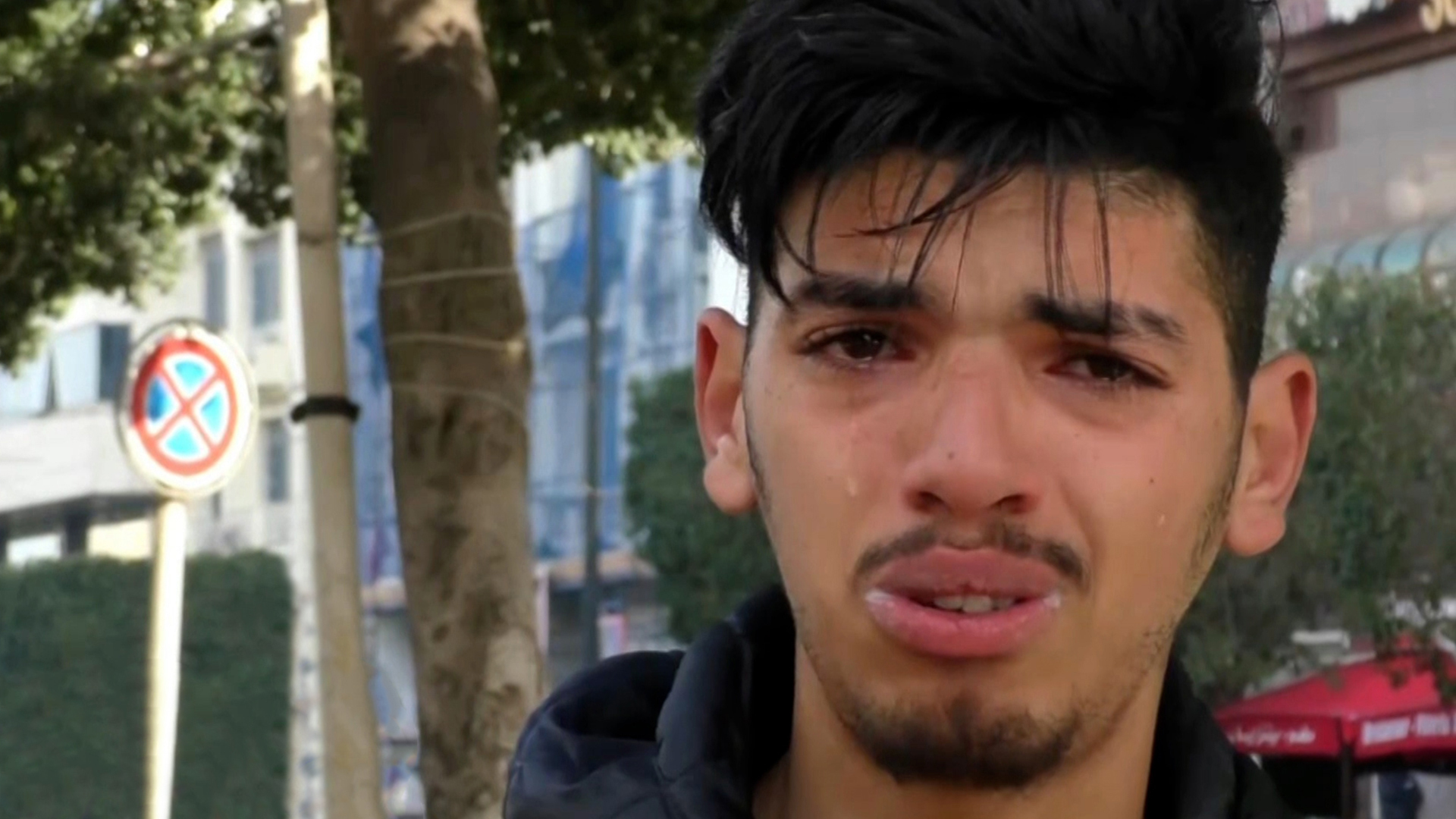When you walk around the streets of the Tunisian capital, you can see some street vendors who sell sweets in small cups and call them tiramisu, which is similar to the Italian tiramisu dessert, and the Tunisian young man, Mohamed Amin, is one of these sellers.
Muhammad - who did not exceed 22 years of age - used to sell sweets - which his mother made at home - in the streets of the capital, where this work is his only source of livelihood, and during his work he used to take video clips of him and his companions and publish them on his Instagram account, as It is followed by about 50 thousand people.
However, Muhammad's condition suddenly changed and his source of livelihood was cut off after the authorities prevented him from working on Habib Bourguiba Street and confiscated his vehicle more than once. The young man was only able to publish a video clip crying, complaining to his followers about the injustice he was subjected to.
In the video clip, Muhammad said, crying heartily, that he did not understand why the authorities confiscated his vehicle and prevented him from continuing his work, and he said while wiping his tears that he had become unemployed, and he could no longer secure his daily sustenance.
The tears of the young seller burned the hearts of the Tunisians, who sympathized with him deeply, and angered them at the measures taken by the authorities against him, and from the tweets that were monitored by the “Shabakat” episode on 27/2/2023, a tweet by the activist Ibrahim Al Thabiti, in which he said, “This poor Walid costume likes to serve his soul ( Depends on himself) by the sweat of his brow, my brother, he is ruled by agents from the ruler, the ruler every day pays me my goods (confiscates my goods), I (became) a hero, and this (that) is my livelihood.”
As for Marwan Abdawi, he expressed his sympathy through a tweet in which he wrote, "When men cry, I know that worries have exceeded the mountains. The tiramisu seller is crying forcibly on Habib Bourguiba Street. Eat his goods more than once. An oppressed young man who does not even have a source of livelihood. Injustice is darkness on the Day of Resurrection." And then they say why (why) young people burn? Why theft?
As for Aziza, she did not hide her anger at the authorities, saying, "They are not merciful, nor is the mercy of my Lord descending. Let the people go, let them serve on their souls. A child would love to serve, why (why) the obstacles? These are your tears that are dear to us."
While Monia bin Thabit regretted the situation that the youth in Tunisia had reached, she wrote, "The youth burned (they went) and died at sea from injustice, arrogance and oppression in this country. We are talking about this (as well) and my heart aches for my country and its poor people."
Najwa Medit also blamed the authorities' dealings with young people and pushing them into unfair ways, so she wrote, "They like him to steal and (steal) people, and he does not sell contraband, and they put him in prison and waste his future."
The head of the "Tunisian Youth Security" organization, Ayman Al-Katri, also joined those in solidarity with the young salesman, and wrote, "Greetings to this young man who chose to serve (work) in a lawful way. (for) serving within a legal framework that protects and encourages it.”
In turn, the spokesperson for the Tunisian Forum for Economic and Social Rights, Ramadan Benomar, spoke about the state's responsibility and the methods it must follow in regulating the labor market. He wrote, "The state's responsibility is not to combat the phenomenon, but rather to regulate this sector by creating suitable spaces for it."
It is noteworthy that the Tunisian authorities pursue street vendors continuously and call this phenomenon "the phenomenon of chaotic fraud."

